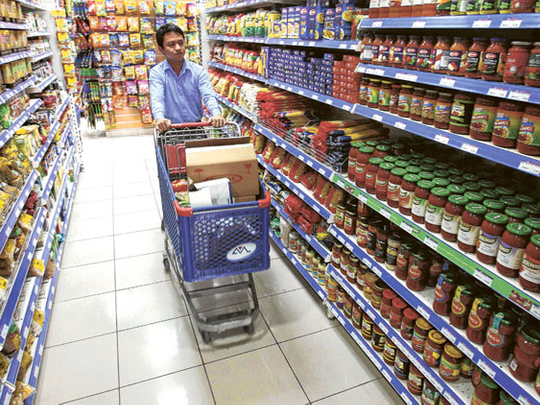
Dubai: Prices of essential foodstuffs are expected to fall by 20 to 30 per cent in March following an agreement between suppliers and the Ministry of Economy to keep rising food prices in check, according to a ministry official.
The ministry will not raise the price of bread despite repeated requests by bakers because it sees no increase in their production costs, said Dr Hashim Al Nuaimi, Manager of Consumer Protection at the ministry.
In the UAE, food and beverage prices showed an average increase of 4.8 per cent in 2010 compared to 0.8 per cent in 2009, according to the Emirates consumer price index, noted Dr Giyas Gokkent, group chief economist at National Bank of Abu Dhabi.
Food and beverage prices are expected to boost inflation levels this year, he added.
Prices of grain, sugar, meat and other staples are at an all-time high globally, according to the United Nations Food and Agriculture Organisation (FAO) food price index for December 2010.
Index
The index, which measures monthly price changes for a food basket composed of cereals, oilseeds, dairy, meat and sugar, averaged 215 points last month, up from 172 points in December 2009. An increasingly affluent population around the world is putting increasing pressure on resources and a rise in oil prices from $35 a barrel in 2009 to $93 today is contributing to the rise in food prices, said Gokkent.
The country's current $4 billion (Dh14.69 billion) annual food import bill is expected to rise as the population grows.
- 4.8%: average increase in food and beverage prices
- $4b: annual food import bill of the country
- 215: points was price index for December 2010












